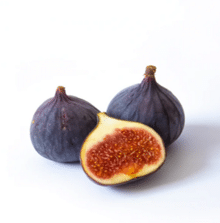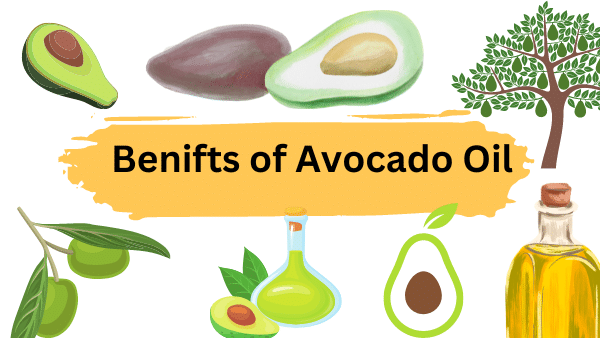Metabolism is the sum of all chemical reactions within the cells of living things. It is a process of transformation of energy that occurs within an organism. Keep reading to know more about ways to increase metabolism.
In addition, Metabolism is divided into two categories: catabolism and anabolism. Catabolism is the breakdown of organic matter, whereas anabolism is the use of energy to construct cell components such as proteins and nucleic acids.
In simple words, Metabolism is the process by which your body converts the food and drink you consume into energy. Calories in food and beverages are combined with oxygen during this complex process to release the energy your body requires to function.

Table of Contents
Metabolism Definition
Metabolism refers to the chemical reactions that occur in the cells of the body to convert food into energy. Our bodies require energy to do everything from moving to thinking to growing. The chemical reactions of metabolism are controlled by specific proteins in the body.
Ways to Increase Metabolism
There are a lot of things that can affect our body, ranging from your body composition to the food you eat. At a younger age, your muscle mass stores up energy thereby preventing the addition of unnecessary weight. Nevertheless, as you get older, that muscle mass is lost and this gives way to more body fat.
Here are 6 ways to increase metabolism
1. Eat Well To Increase Metabolism
In order to lose weight, you will need to cut calories to lose weight. However, cutting to loo might not be too good for your metabolism. When you eat less than what you actually need for the biological function of your body. around 1200 calories for women. It helps your body to break down calorie-burning tissue for energy. You will need to eat well so that you are not hungry.

2. Use Protein Rich Food
The human body needs protein in order to maintain lean muscle. Studies have shown that proteins can rev post-meal calories by as much as 35%. So include protein in your everyday diet.
Some studies have found that eating more protein can also reduce the drop in metabolism often associated with losing fat. This is because it reduces muscle loss, which is a common side effect of dieting

3. Drink Tea or Coffee to Boost your Metabolism
A study from the University of Birmingham states that a cup of tea can boost your metabolism by 17%. These teas help convert some of the fat stored in your body into free fatty acids, which may increase fat burning. Many researchers have come to agree that antioxidants catechins in tea or coffee can be an effective metabolism booster.

4. Drink Enough Water To Increase Metabolism
According to some German researchers, drinking at least six cups of water every day can increase your metabolism by about 50 calories every day. This is just enough to shed 5 pounds of fat in a year.

5. Use Fibres To Fight Fat
Studies have shown that some fibres can help your fat burn as much as 30%. Some studies revealed that a woman who eats fibre content doesn’t gain unnecessary weight over time. You should aim at eating 25 grams of fibre in a day. This can easily be gotten by eating about three servings of vegetables and fruit.
6. Eat Food Rich in Iron
Iron-rich foods are essential for fast metabolism diet because they carry the oxygen that your body needs to burn out excess fat. good sources of iron include beans, lean meats, fortified cereals, shellfish, and spinach.
How to Speed up your Metabolism?
- Build Muscle: Muscle tissue is more metabolically active than fat tissue, so building lean muscle through strength training exercises can help increase metabolism.
- Stay Hydrated: Drinking plenty of water can help keep the body hydrated and support efficient metabolism.
- Eat Enough: Eating too few calories can slow down metabolism, so it’s important to consume enough calories to support the body’s energy needs.
- Eat Protein: Protein is more thermogenic than carbohydrates or fat, meaning the body burns more calories digesting it. Including protein-rich foods in meals and snacks can help boost metabolism.
- Get Enough Sleep: Lack of sleep can disrupt hormone levels and lead to slower metabolism, so it’s important to aim for 7-9 hours of quality sleep per night.
- Drink Green Tea: Green tea contains compounds that can boost metabolism and increase fat burning, making it a good beverage choice for those looking to speed up their metabolism.
- Do HIIT Workouts: High-intensity interval training (HIIT) can help increase metabolism and improve cardiovascular fitness, making it an effective way to support weight loss goals.
- Stand More: Sitting for long periods of time can slow down metabolism, so incorporating more standing and movement throughout the day can help keep the metabolism revved up.
- Manage Stress: Chronic stress can lead to imbalances in hormone levels that can slow down metabolism. Managing stress through practices like meditation, yoga, and deep breathing can help support a healthy metabolism.
Related Topics
| Fig Fruit| Health Benefits | Raspberries| Health Benefits |
| What is Manuka Honey? | Pathology And Pathologist |
Bottom Line
This article explains ways to increase metabolism. We hope that after reading this article you are able to understand the factors affecting the metabolism of the human body. If you have any questions, please feel free to post a comment.
Interesting Links
What Is a Keto diet| Zero Carb Popular Food
What are the tips to set a flat stomach?
Avocado Oil| Health Benefits| Green Gold
Body’s Preferred Source of Energy
Density of Water in g/ml-Accurate Value
Combustion Reactions| Introduction, Reaction, & Facts
How Many Cups in a Gallon? Cups to Pints, Quarts, and More
Frequently Asked Questions
- What is the definition of metabolism?
A: Metabolism is the process by which the body converts food and drink into energy and other essential substances needed for growth and development. - What are the two types of metabolism?
A: The two types of metabolism are catabolism, which breaks down molecules to release energy, and anabolism, which uses energy to build new molecules. - What role does the liver play in metabolism?
A: The liver plays a central role in metabolism by processing and storing nutrients, producing and secreting bile to aid in digestion, and detoxifying harmful substances in the body. - How does exercise affect metabolism?
A: Exercise can increase metabolism by increasing the body’s energy demands and promoting the growth of lean muscle tissue, which burns calories even at rest. - How does age affect metabolism?
A: Metabolism tends to slow down with age, leading to a decrease in the body’s energy needs and an increased risk of weight gain and other health issues. However, regular exercise and a healthy diet can help mitigate the effects of age-related metabolic changes. - What is the relationship between metabolism and weight loss?
A: Weight loss occurs when the body burns more calories than it consumes, and metabolism plays a key role in determining how many calories the body burns at rest. Increasing metabolism through exercise, proper nutrition, and other lifestyle factors can help support weight loss goals. - How do hormones affect metabolism?
A: Hormones such as insulin, thyroid hormones, and cortisol play important roles in regulating metabolism by influencing the body’s use of glucose and other nutrients, controlling energy expenditure, and responding to stress. - How can metabolism be measured?
A: Metabolism can be measured using a variety of techniques, including indirect calorimetry, which measures the amount of oxygen the body consumes and carbon dioxide it produces to estimate energy expenditure, and dual-energy X-ray absorptiometry (DEXA), which measures body composition and can estimate resting metabolic rate.
Our body’s preferred source of energy is Carbohydrates. They are one of three macronutrients along with protein and fat. When we eat carbohydrates they enter our bloodstream in the form called glucose.
The keto diet is a very low-carb diet. To use it, the body has to switch to mainly using fat for fuel. For example, real foods like eggs, meat, avocados, butter, nuts, etc.
Eat Food Rich in Iron
Use Fibres To Fight Fat
Drink Enough Water
Drink Tea or Coffee
- BCl3 Lewis Structure in four simple steps - November 1, 2023
- PH3 Lewis Structure in four simple steps - October 8, 2023
- PF3 Lewis structure in four simple steps - September 24, 2023



